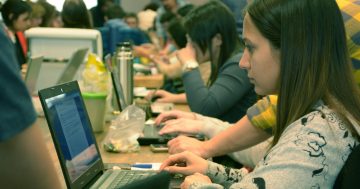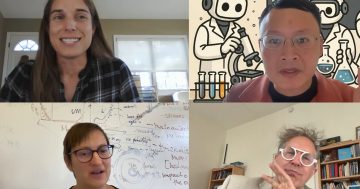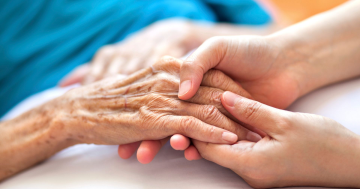
Dr Chrissy Antonopoulos’ new study has found a relationship between personal values and an implicit bias towards Australians living with a disability. Photo: Charles Sturt University.
A Charles Sturt University PhD graduate and her colleagues have found through their research a relationship between people’s personal values and the way they see people living with a disability.
The Charles Sturt School of Psychology’s Dr Chrissy Antonopoulos said there were an estimated five and a half million people with disability in Australia (ABS, 2024) and they experienced significant inequalities, barriers and discrimination in all aspects of their lives.
“Often, barriers and prejudice towards people with disability are caused by other people and stem from negative attitudes and stereotypes,” Dr Antonopoulos said.
“This study investigated implicit bias towards people with disability and the relationship between implicit bias and personal values.”
The study, ‘Implicit bias towards people with disability in Australia: relationship with personal values’, was published in the Australian Journal of Psychology in May.
Dr Antonopoulos said the study was the first to link personal values with implicit bias and had confirmed that more than three quarters of the Australian sample implicitly stereotyped people with disability as incompetent and cold, a stereotype profile that elicited feelings of contempt and disgust.
“People who value benevolence and universalism reported less negative implicit biases,” she said. “Whereas people who value adherence to current structures, norms, and power have greater negative implicit bias towards people with disability.”
Dr Antonopoulos argues that, as people with disability historically and currently continue to experience inequality, it is essential to uncover mechanisms to target behaviour and influence decision-making to improve outcomes for people with disability.
“There has been no shortage of attempts to improve outcomes for people with disability, with little change to outcome variables such as employment, according to the Australian Bureau of Statistics,” she said.
“Our discovery of the relationship between personal values and implicit bias offers a different way forward.
“Policymakers could use the findings of this study to develop community strategies incorporating implicit bias and personal values awareness and training into education, employment and healthcare.
“To improve the lives of people with disability, the Australian community must look within at their implicit biases, their personal values and how these may be impacting people with disability, particularly for those working in healthcare, employment and government spaces.”
















